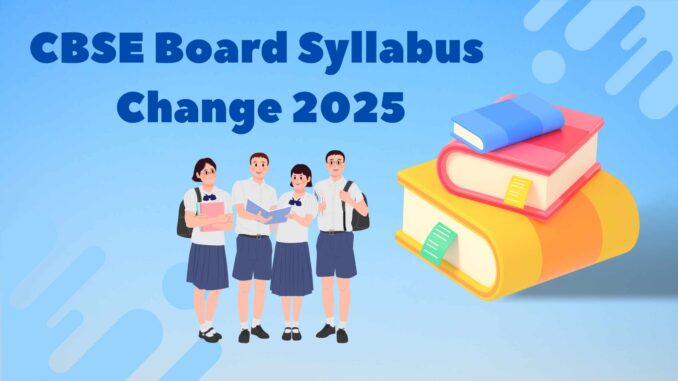
What is Curriculum?
The term “curriculum” is derived from the Latin verb “currere”, which means “to run”. Historically, it was referred to the subjects taught in ancient Greece.
The term “curriculum” refers to a systematic set of educational experiences offered to pupils by an educational institution. It includes the subjects and content covered, the skills and competences gained, and the teaching methods used to complete educational objectives. A well-designed curriculum helps to shape students’ learning experiences and outcomes.
Need of Curriculum:
- Guides Instruction: A well-structured curriculum works as a road map for educators to design and implement effective classes.
- It promotes consistency in education standards among schools and educational systems.
- Facilitates Assessment: By specifying explicit objectives, the curriculum helps to measure student’s progress and learning outcomes.
- Promotes Equality: A thoughtfully designed curriculum can ensure that all students have access to a high-quality education and opportunity for success.
CBSE Board Syllabus Change 2025

The Central Board of Secondary Education (CBSE) in India has announced important curriculum revisions for the 2024 academic year. These modifications seek to improve the educational experience by adding modern educational approaches, emphasizing skill development, and making learning more student-centered.
For the 2025 Class 10 and 12 board exams, the Central Board of Secondary Education (CBSE) has made major changes with the goals of reducing the amount of material covered in the syllabus, emphasizing skill-based assessments, and updating the format of the test. These steps, which were told by a principal in Indore, are useful to help kids grasp concepts in a more understanding way and lessen the strain of memorization.
Vikas Kumar Agrawal, the regional officer for Bhopal for the CBSE, announced a 15% syllabus reduction for Classes 10 and 12, according to a TOI repost. The educational goals of CBSE, which centers on giving students the chance to understand subjects more thoroughly, are in line with this revision.
The following changes are meant to be internalized in CBSE for class 10th and 12th by 2025:
Introduction of 40% internal assessment weightage:
Another significant change is the increasing importance of internal assessments, which will now make up 40% of the final grade. The final board tests will determine the remaining 60%. The internal assessment component promotes a more continuous and balanced evaluation system by adding on projects, tests, and evaluations.
Emphasis on skill-based learning and practical knowledge:
The National Education Policy (NEP) 2020 states that the CBSE will adopt an exam format that will prioritize skill-based questions over rote memorization. Nearly half of the question paper for the 2025 board exams will evaluate students’ practical knowledge and problem-solving abilities in the actual world, which will promote critical thinking. This modification represents a change in emphasis towards assessing students’ conceptual comprehension and application in practical contexts.
A significant shift in the curriculum for the CBSE 2024 is the increased emphasis on skill-based learning. With this method, students will gain useful abilities that they may use in everyday situations. The curriculum will add:
More vocational courses are being offered, enabling students to learn about and become proficient in a variety of crafts and professions.
Encouragement of students to work on projects that combine several academic fields and foster critical thinking is known as project-based learning.
Also Check: CBSE NCERT Solutions Class 8 to 1oth NCERT Solutions
Open book exams and Digital assessments:
The CBSE will keep evaluating answer papers digitally for a few topics, a technique that has increased grading accuracy and transparency. Additionally, for several disciplines like social science and English literature, CBSE wants to introduce an open-book exam structure. By allowing students to refer to their textbooks during tests, this new approach will lead in conceptual understanding and analytical abilities against memorization. Fostering student’ capacity to apply information in real-world situations is their objective.
By 2026, transitioning to a two-term examination format:
CBSE has reaffirmed plans to transition to a two-term exam system starting in the 2025–2026 academic year, even though the single-term exam structure would remain in place for the 2025 session. The goal of this move, according to Agrawal, is to provide more frequent evaluations throughout the year in order to lessen the stress that comes with a single, end-of-year exam.
Conclusion: How are the students benefitted by this change in 2025?
The CBSE 2024 curriculum changes are a step towards modernizing education in India. By focusing on skills, technology, and holistic development, CBSE aims to prepare students to meet the challenges of the 21st century effectively. These reforms offer a dynamic and inclusive educational landscape for the years to come. Further we will see students’ shifting from rote memorization to more effective skill based and practical knowledge with digital assessments and shift to internal assessments after syllabus reduction and other changes highlighted.
Implications for Students and Teachers:
Beyond rote memorizing, students can anticipate a more dynamic and interesting educational experience. They will be better prepared for higher education and the workforce by the focus on skills and practical knowledge.
Teachers will get training to help them adjust to the new curriculum modifications. They will be useful in creating an atmosphere that encourages students to collaborate, think critically, and be creative.
Stay tuned to CareerAdvice4u for more education updates. Don’t forget to follow our Facebook page.
- CBSE Board Syllabus Change 2025 Update for Class 10th and 12th [Latest Update] - November 30, 2024

Leave a Reply